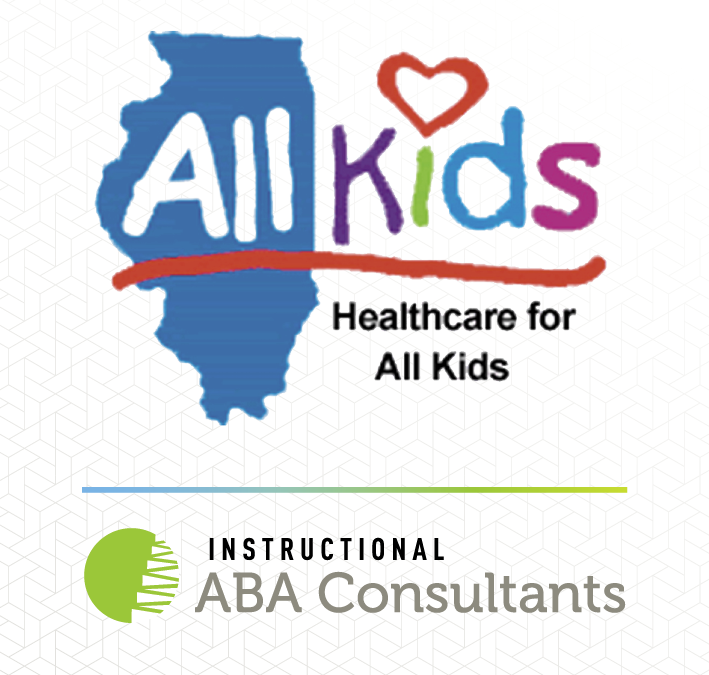
by IABA Team | May 2, 2022
A few weeks ago, we wrote a blog on general tips to help children with autism feel comfortable at a doctor’s office. We mentioned finding a doctor who has specific practices for children with autism but didn’t go too in-depth.
This week, we want to focus on finding a great pediatrician for autistic children. This includes where to look, what to ask, and what to do before scheduling your first appointment.
How to Find A Pediatrician who Works with Children with Autism
Our previous article mentioned searching online for pediatricians who work with or specialize in children with autism. This is the best step to finding a large list of doctors who can help children with autism. To narrow down a search, the American Academy of Pediatrics (AAP) also has a searchable list to find pediatric specialists.
The AAP also notes looking for doctors with the initials FAAP after their name. This indicates they are board-certified members of the AAP which entail:
- Members (fellows) of the American Academy of Pediatrics (AAP)
- Committed to lifelong learning.
- Advocates for children and families.
- Up to date on the latest in child health.
The last 3 are especially important for children with autism, as new information is entering the field at a rapid pace. Be sure to find a doctor who is FAAP certified.
Questions to Ask a Pediatrician’s Office
Before scheduling an appointment with any pediatrician, you’ll want to have some important questions answered. Examples of questions to ask a potential pediatrician’s office include:
- Do they have experience with patients diagnosed with autism?
- Does the pediatrician have any specialties related to autism or ASD?
- Are there any special practices or procedures in place for autistic children?
- Is the office friendly to autistic children?
- Are there any special accommodations for autistic children?
If a potential pediatrician doesn’t answer your questions satisfactorily, be sure to ask the receptionist about other doctors that may help. Many doctors’ offices are part of a larger network and a simple referral could end your search on the spot!
Developmental Pediatricians
Developmental pediatricians are becoming more prevalent. Also called ‘pediatricians for autism,’ developmental pediatricians specialize in children with developmental issues. Developmental pediatricians can help create a comprehensive care plan for your child, one that is created specifically for their unique development.
The offices and practices of developmental pediatricians are often catered toward children with autism. This can include things like office structure, decorations, toys/activities in the waiting area, appointment procedures, and more.
While they are often the best choice, developmental pediatricians can be hard to find in some less-populated areas. Be sure to call any developmental pediatricians you are considering taking your child to as soon as possible. Like all specialists, developmental pediatricians are often booked weeks or months in advance.
ABA Therapy from IABA Consultants
If you have questions regarding autism treatment, education, or plans to use ABA therapy, we are here for you! Our goal is to make sure no family is turned away due to financial constraints. Our therapy team would love to talk to you. Find the location closest to you and give us a call. We’re here for you.

by IABA Team | Apr 25, 2022
Shopping with children isn’t easy. From the busy environments to the constant ‘I wants’, children will always find a way to make your trip to the store more difficult. The discomfort an autistic child may feel during shopping experiences can bring some other challenges into the mix.
This article was written to give some general tips on how to make your child feel more comfortable during shopping trips. And a happy child may help mom or dad have an easier shopping experience.
Planning Your Shopping Trips
While knocking out all your shopping needs in one trip sounds nice, it may not be the best option for your child. Extended shopping trips can throw off a child’s schedule. Spreading out your shopping may allow your child to get more comfortable with the trips in general.
Sticking to the principle of shorter trips also allows parents to introduce children to different environments at different times. This can help familiarize your child with new places and activities that happen in social situations.
And be sure to keep ‘big purchase’ shopping experiences kid-free. If you are buying something that needs salespeople, paperwork, or consultation, you’ll definitely want to leave your child at home. These complicated sales can take a long time to complete and you may have to switch your focus from your child to the sale–which isn’t good for either of you!
Making Shopping Trips Easier
Just like most situations, shopping with an autistic child can be made easier by preparing for their potential discomfort. Some great things to bring on any shopping excursion include:
- Any must-have toys or objects
- Favorite snacks & drinks
- A list or other visual aid to show your child the shopping itinerary
On top of physical objects that can make shopping easier, there are also a few things you can do with your child to prepare. Be sure to talk to your child’s therapist about these practices to make sure they are in line with their program.
- Timeframe visual aids
- Picking out things at specific stores (snacks, clothes, toys, etc, depending on the store)
- Helping with the shopping (pushing a cart, holding a basket, using the credit card, etc)
- Practice behavior with potential rewards
Helping your child feel comfortable is paramount to a great shopping experience. Be sure to work with your child before any new shopping location to keep the attitudes and behaviors positive.
ABA Therapy from IABA Consultants
If you have questions regarding autism treatment, education, or plans to use ABA therapy, we are here for you! Our goal is to make sure no family is turned away due to financial constraints. Our therapy team would love to talk to you. Find the location closest to you and give us a call. We’re here for you.

by IABA Team | Apr 18, 2022
Haircuts are difficult for many young children. Adding sensory sensitivities to the equation can make haircut appointments even harder. This is why we want to talk about haircuts for autistic children and what can be done to make appointments easier.
This article is a continuation of the topics from the last two weeks (Dental Visit Tips for Children with Autism | Doctor Visit Tips for Children with Autism). These are important topics, as getting your child comfortable with important social situations, while difficult, is necessary.
Finding an Autism-Friendly Hair Stylist
There aren’t many comprehensive autism-friendly hairstylists or salon lists available on the internet. This doesn’t mean you’re out of luck when it comes to searching for a great place to get a haircut, however.
Some beauty professionals list autism-friendly on their websites. This makes using search engines to find them very easy. Use search terms like ‘autism haircut near me’ or ‘autism-friendly hair stylist’ to start your search.
If you are comfortable with addressing the sensory sensitivities your child has that may arise during a haircut appointment, be sure to ask about or make requests beforehand.
- No electric clippers, blowdryers, water, shampoo, etc.
- Any specific touching or holding of the hair
- Scheduling an appointment at a less busy time
Talking to your child’s therapist before a haircut may also be a big help in jogging your memory for things that may help.
Preparing for a Professional Haircut
Before an appointment with the hairdresser, there are a few steps you can take to ease your child into feeling more comfortable about the appointment.
- Take a few trips to the salon before the appointment to acquaint your child with the environment
- Practice with brushes and combs while your child is seated at home
- Make sure to note any sensory issues that could arise: noise from electric clippers and blow dryers, hair touching, using water, etc
- Make sure your child has toys or objects they can have during the haircut
ABA Therapy from IABA Consultants
If you have questions regarding autism treatment, education, or plans to use ABA therapy, we are here for you! Our goal is to make sure no family is turned away due to financial constraints. Our therapy team would love to talk to you. Find the location closest to you and give us a call. We’re here for you.

by IABA Team | Apr 11, 2022
Taking your child to the doctor for a checkup can be an ordeal, especially if your child has related sensory sensitivities. The setting, noises, number of people, and other things can lead to many different sensory issues.
Like last week’s blog on visiting the dentist, this week we wanted to focus on making trips to the doctor easier.
Finding an Autism-Friendly Pediatrician
There aren’t many comprehensive autism-friendly doctor or pediatrician lists available on the internet. This doesn’t mean you’re out of luck when it comes to searching for a great doctor, however.
Many medical professionals list autism-friendly on their websites. This makes using search engines to find them very easy. Use search terms like ‘autism pediatrician near me’ or ‘autism-friendly pediatrician’ to start your search.
It is also imperative to call the office with questions ready before scheduling an appointment. Things to talk about before scheduling an appointment should include:
- Anything regarding existing behavioral or developmental conditions and how they may affect the visit or appointment
- Any sensory sensitivities with light, noise, crowds, or other situational concerns
- Communication difficulties with your child (noises, nonverbal, etc)
- Any common triggers that may be found in a new setting
- If a special waiting area is available for children with sensory sensitivities or autism
- If your child has certain difficulties with waiting or new places you may want to ask about scheduling a specific appointment where you don’t have to wait. Be sure to tell the scheduler about concerns regarding waiting times.
Make sure to have a list ready so you don’t forget anything during the phone call.
Preparing for a Visit to the Doctor
As it can be for other activities and appointments, a visit to the doctor can potentially throw children with autism off their routine. Making sure your child has easied into a schedule where an appointment may fit in is a great first step to take.
Be sure to bring any toys or objects that will make your child feel comfortable during the visit. Remember–the waiting period can be just as difficult as the appointment, especially if the doctor is delayed.
Visiting the office before an appointment can also be very helpful to acclimate your child to a new environment. If you have concerns about the new environment, be sure to call the office and see if you can make a few short trips there before the appointment.
A few things to be sure to have on hand for a doctor’s appointment include:
- Any important toys or objects
- Snacks or drinks
- Prefilled paperwork (if any is given before the appointment)
- A plan to deal with any large outbursts or behavioral issues
Be sure to talk to your child’s therapist if you have any concerns before an appointment. They know your child well and should have some great information that may help.
ABA Therapy from IABA Consultants
If you have questions regarding autism treatment, education, or plans to use ABA therapy, we are here for you! Our goal is to make sure no family is turned away due to financial constraints. Our therapy team would love to talk to you. Find the location closest to you and give us a call. We’re here for you!

by IABA Team | Mar 22, 2022
As of March 2022, IABA consultants is accepting clients with Medicaid as an insurance provider. The programs and services for ABA therapy offered to Medicaid clients are identical to those offered to private pay insurance clients.
The biggest changes we are making to our offered services are based on programs developed by our LCSWs (Licensed Clinical Social Workers). These programs will be based around systemic and familial issues, chiefly education and communication.
Future ABA Social Programs for Children with ASD and Their Families
While the general ABA therapy services are currently the only things we offer (as of March 2022), we have plans for more in the future. Our LCSWs have started working on the following supplemental care services:
- Social skills groups (tentatively scheduled for summer 2022)
- LCSW-led groups
- Resource library for families & clients
Other possibilities we want to look at down the road include:
- Crisis teams for extreme behaviors
- On-staff psychiatrists
- Parental care programs for at-risk families
- Counseling (both individual and family)
- Medication monitoring & management
We are also working on getting in-home ABA therapy added to the Medicaid benefits we accept. This is a bit harder to narrow down, as there are certain aspects of in-home therapy that make billing a bit more specific. We will update Medicaid & in-home service billing as soon as we have a complete plan.
Having social workers on staff has led us to some interesting ideas that will benefit all of our clients regardless of funding. These programs are still being developed and more information on them will become available as we finalized it.
The goal of these services is primarily to educate the families of children in need of ABA services. Maintaining consistency between in-clinic visits and at-home routines is one of the largest factors to the success of ABA therapy.
ABA Therapy from IABA Consultants
IABA consultants is now accepting All Kids Medicaid!
Medicaid Clinic Timeline:
- Oak Lawn: Current
- Naperville: May 2022
- Glenview: Summer 2022
- Managed Care Plans: Summer 2022
Dates are tentative and may be subject to change.
For details and coverage information, find the location closest to you and give us a call or send us an email.
If you have questions regarding autism treatment, education, or plans to use ABA therapy, we are here for you! Our goal is to make sure no family is turned away due to financial constraints. Our therapy team would love to talk to you. Find the location closest to you and give us a call. We’re here for you.



